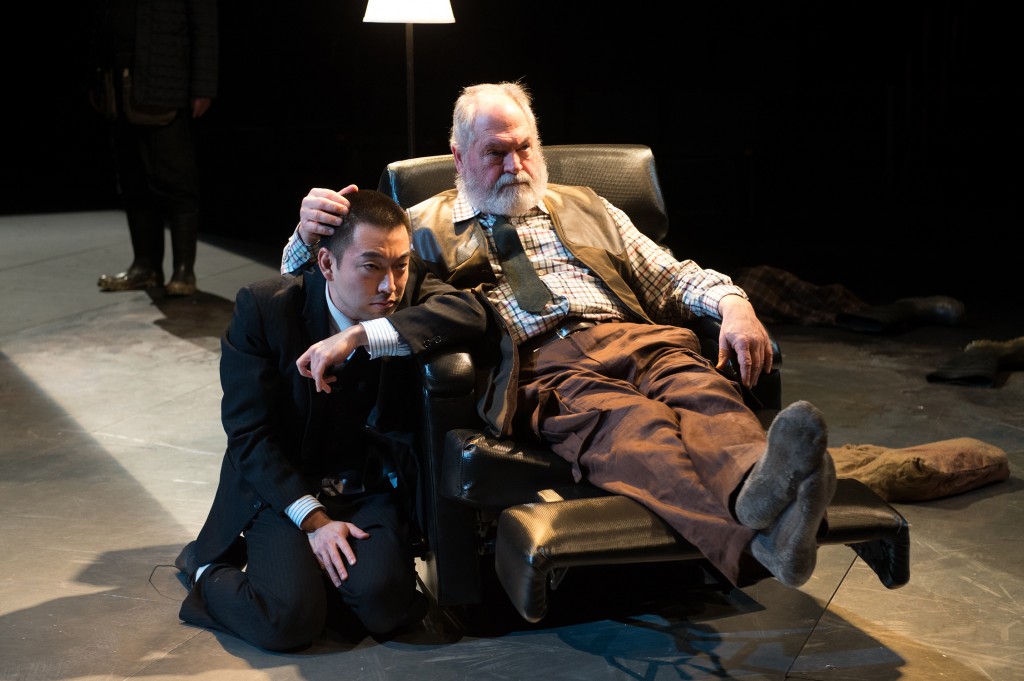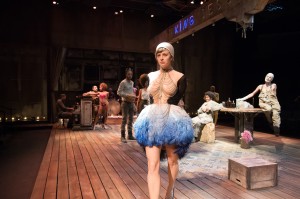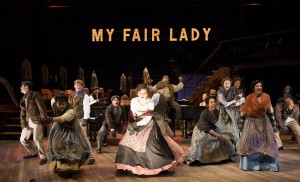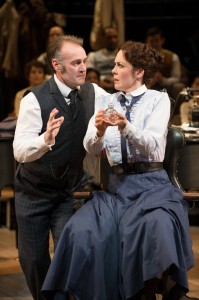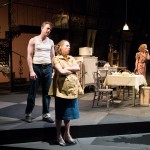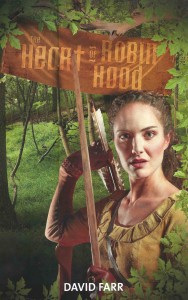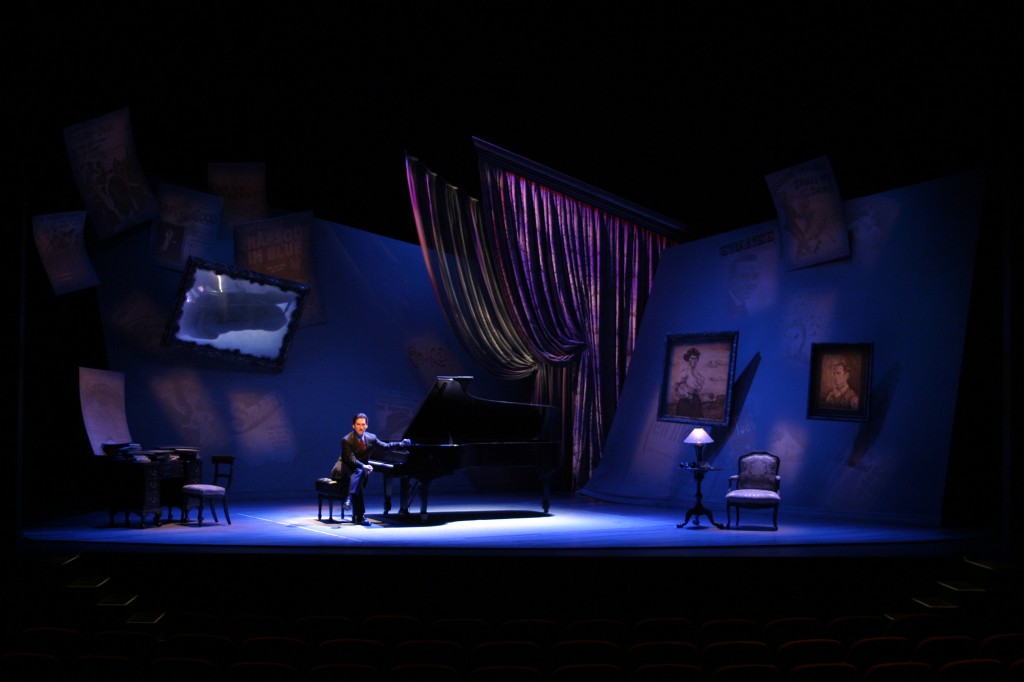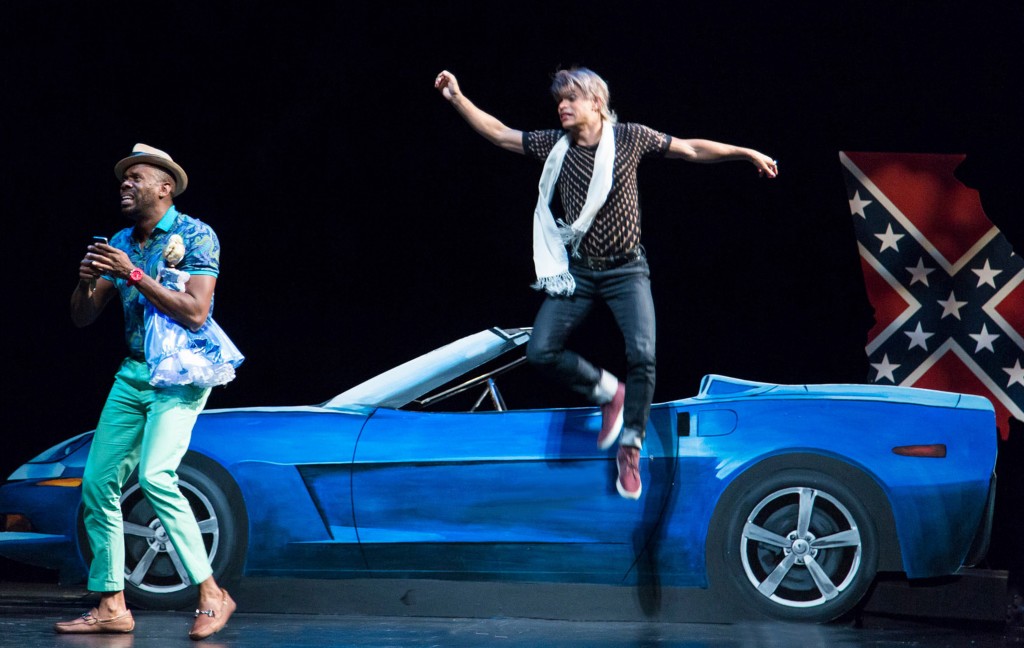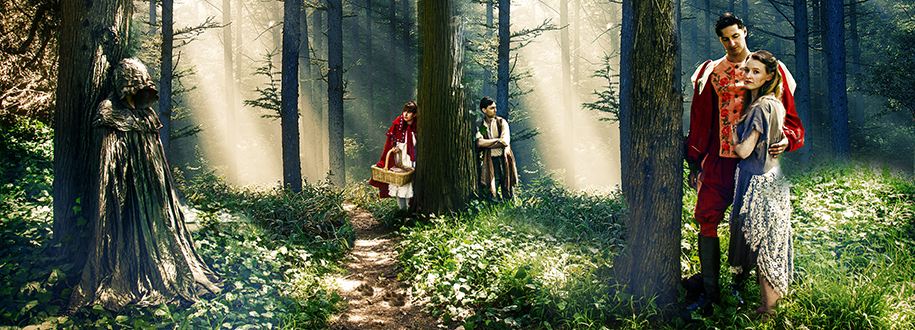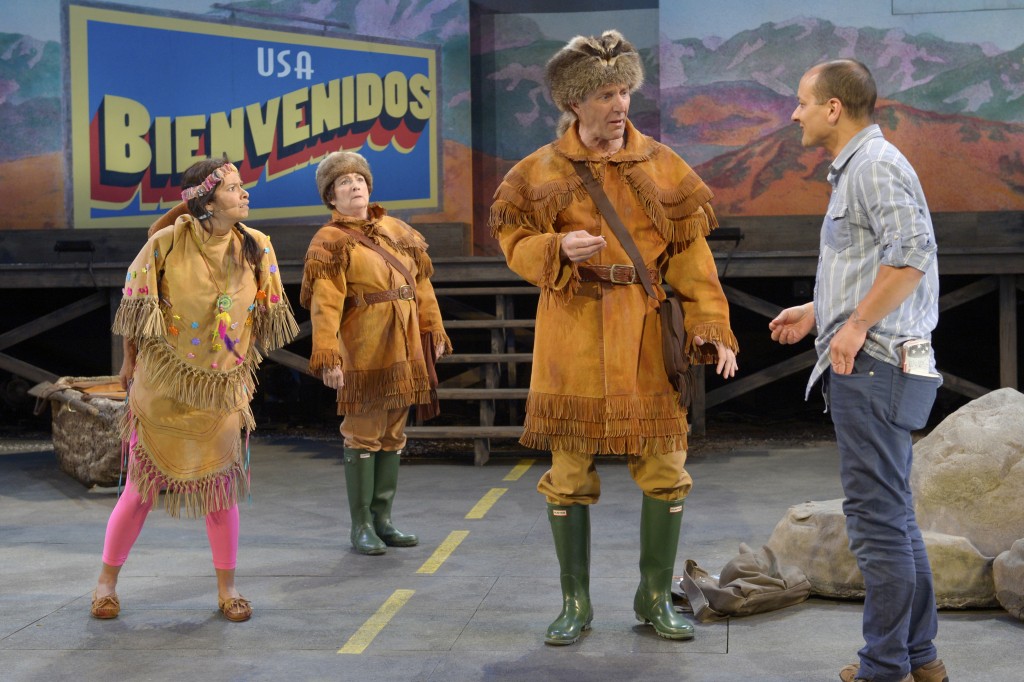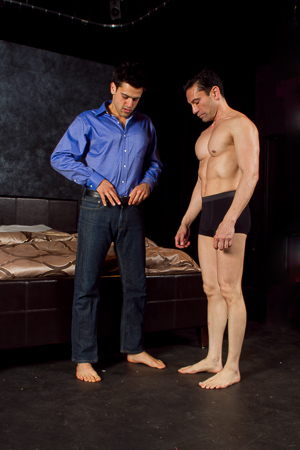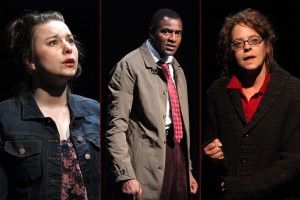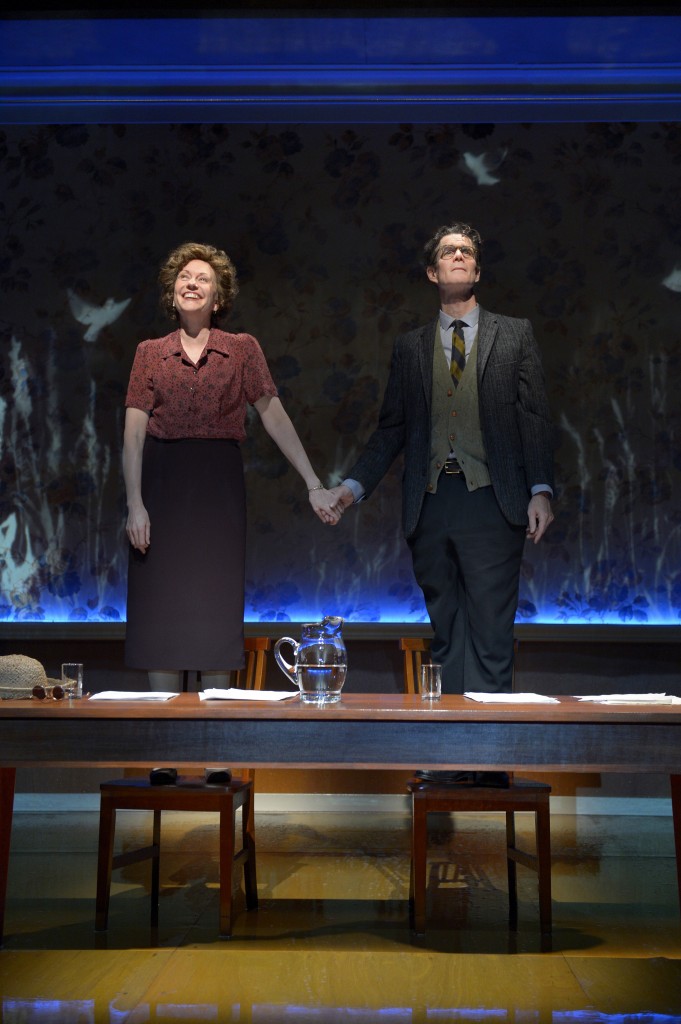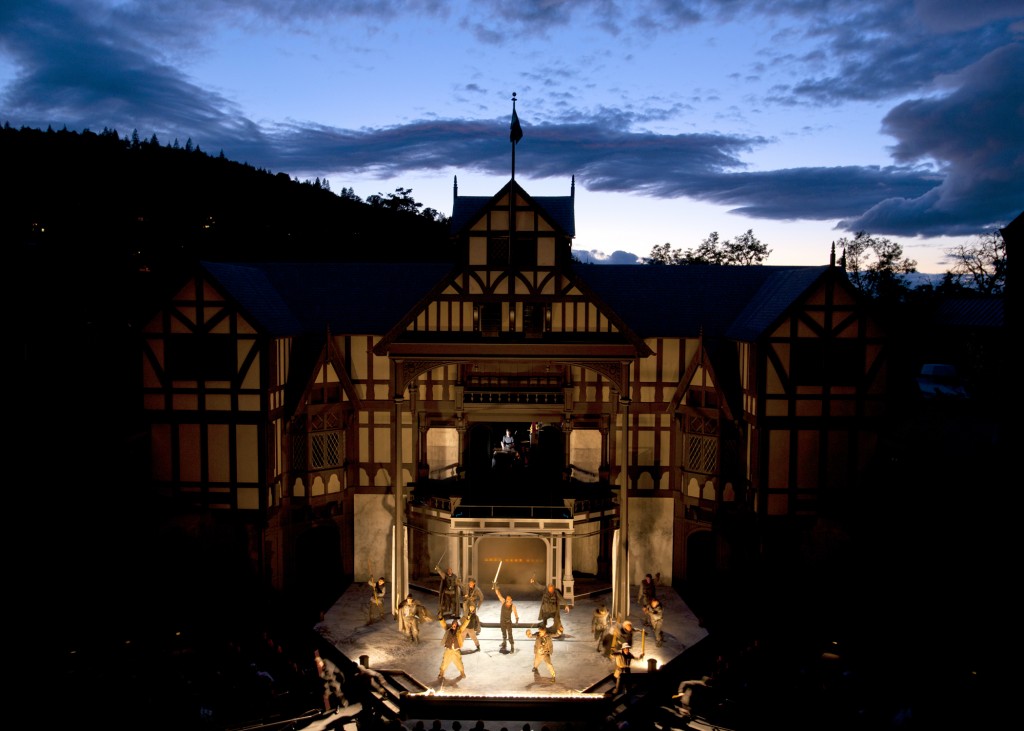
Elizabethan/Allen Pavilion for the 2012 Season
OREGON SHAKESPEARE FESTIVAL 2013, P.O. Box158, 15 South Pioneer Street, Ashland, Oregon 97520. 541-482-2111 or www.osfashland.org
The Oregon Shakespeare Festival (OSF) in Ashland has been under the Artistic Directorship of Bill Rauch for the last five years and each year there seems to be larger and more appreciative audiences. Rauch’s first foray into the OSF venue was in the 2006-2007 seasons when he received accolades for his directing of Romeo & Juliet and Two Gentlemen from Verona. He seems dedicated to the idea of “concept productions” of Shakespeare’s plays and the only ‘straight’ production in the last five years was the brilliant Henry VIII. The concept idea still dominates in 2013 and all three Shakespearean plays are parading the boards in very original and thought provoking style.
The least often produced Cymbeline and the ubiquitous A Midsummer Night’s Dream are gracing the outdoor Elizabethan Stage/Allen Pavilion and King Lear in the intimate theatre-in-the round Thomas Theatre (formerly the New Theatre). This year the evening performances begin at 8 rather than 8:30 p.m. which is a wise decision since many of the shows run three hours or more with King Lear ringing in at three hours and 15 minutes with two intermissions. Cymbeline takes second honors at three hours and 10 minutes with one intermission. The third play for the outdoor Elizabethan Stage is the U.S. Premiere The Heart of Robin Hood by David Farr an import from the Royal Vic of London that stole the hearts of the opening night audience. Most of the OSF plays receive standing ovations (whether they deserve them or not) but this one was the most spontaneous and deserved. It is ingeniously directed by Joel Sass who is no stranger to the Cal Shakes and the Bay area. Another familiar director is Amanda Dehnert who staged The Verona Project at the Bruns Amphitheatre also for Cal Shakes. Dehnert gets the brass ring for her imaginative, brilliant staging of Lerner and Loewe’s My Fair Lady. These last two mentioned plays alone are worth a visit to Ashland.
Another change for this year’s Elizabethan Stage is a “uni-set” used for all three productions. There probably is a cost savings but at a press conference the explanation was that Cymbeline, Dream and Robin Hood all have sylvan settings within their plots thus the unity of the set designs was appropriate. Sounds reasonable.
The final Shakespearean play is The Taming of the Shrew receiving a riotous rendition with the action taking place on an Atlantic City type board walk with a three piece onstage band. This production is part of Shakespeare for a New Generation, a national theatre initiative sponsored by the National Endowment for the Arts in cooperation with Arts Midwest. Its purpose is to attract younge audiences. This Taming of the Shrew will most certainly do that. It starts and ends with a hip-hop style dance with the amplified guitar, bass and drums bringing cheers.
The final two plays seen in this five day visit are Tennessee Williams’ popular A Streetcar Named Desire and the World Premiere of The Unfortunates. Whereas Desire is well worth, with a few caveats about the staging, since Kate Mulligan as Blanche gives a Tony Award type performance. The Unfortunates commissioned by OSF with book, music, lyrics by 3 Blind Mice (Jon Beavers, Ian Merrigan, RamizMonsef and Casey Hurt, with additional material by Kristoffer Diaz) is an unfortunate experience. It was put together by a committee and it looks it. It is dressed in grunge, the music fluctuates between Hip-Hop, blues, jazz and Gospel without rhyme or reason and the convoluted inanely excessive story line is difficult to follow.
SHAKESPEARE’S PLAYS:
Thomas Theatre.
KING LEAR by William Shakespeare (2/21- 11/3) Directed by Bill Rauch. Scenic design by Christopher Acebo. Costume design Linda Roethke.
Lightening design by Christopher Akerlind. Music and Sound Andre J. Pluess.
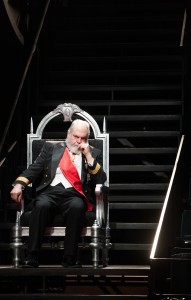
King Lear (Michael Winters) awaits answers to his question–a question that ultimately undoes him. Photo by Jenny Graham
The interpretations/analyses of King Lear are multitudinous. Director Bill Rauch waxed eloquent in the program notes “. . . of this masterpiece. As deep as the Mariana Trench, as high as Mt. Everest, as vast as the star-filled sky? You bet.” Taking this as his gospel one might be engulfed in the magnitude of his dark and powerful staging on the intimate theatre in the round Thomas Stage. You are part of the action yet you may withdraw with revulsion at the violence of man’s inhumanity to man and the thought that individual characters must virtually and actually be blinded in order to “see” clearly.
If you accept Rauch’s premise, and it is very reasonable, why after a precisely staged and acted first scene does he have the technical crew wheel a massive basketball backboard onto the acting area having Edmund (Raffi Barsoumian) enter dribbling a basketball and shooting hoops? After much thought Rauch may to suggesting that it is all a game to Edmund and that game will turn deadly. OK, that’s almost acceptable.
Michael Winters, who was a brilliant Prospero at CalShakes, will alternate in the role of Lear with former ACT favorite Jack Willis. Winters played the role in the production we saw. He gave a commanding and dominating performance ably supported by Vilma Silva (Goneril), Robin Goodrin Nordli (Regan), Richard Elmore (Earl of Gloucester) and Sofia Jean Gomez (Cordelia).
The technical effects, that sometime overpower the acting, are at times massive (an eight foot high metal gate and fence stretching diagonally across the floor), a staircase extending to the rafters, appalling (Gloucester’s eyes being put out) and clever (four flashlights illuminating Lear’s face as he goes mad in the storm scene). The elevator conveniently lifting a portion of center stage with props gets extended use. Suggestion: Reservedly recommend.
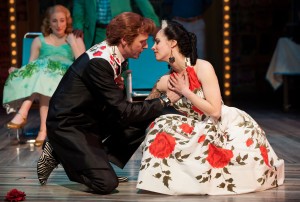
Petruchio (Ted Deasy) and Kate (Nell Geisslinger) affirm their love for one another as Bianca (Royer Bockus) looks on. Photo by Jenny Graham.
Angus Bowmer Theatre:
THE TAMING OF THE SHREW (2/15-11/3) by William Shakespeare. Director David Ivers. Scenic Design Joe Winiarski. Costume Design Meg Neville. Lighting Design Jaymi Lee Smith. Video/Projection Kristin Eflert. Music/SoundPaul James Prendergast.
In this age of political and social correctness The Taming of the Shrew becomes a problematic play as differentiated from Shakespeare’s problem plays. It is problematic because it treats women as chattel and has a misogynistic streak. Fear not, David Ivers’ ingenious, hilarious staging is a joyful affair that will leave you laughing and is one of the must see productions at OSF.
You all know the story of rich Master Batista (Robert Vincent Frank) with two marriageable daughters. Elder shrewish Kate (Nell Geisslinger) and younger adorable beauty Bianca (Royer Backus) is being pursued by Gremio (David Kelly) and Hortensio (Jeremy Peter Johnson). Alas along come Lucento (Wayne T. Carr) and his servant Tranio (John Tufts). They switch costumes in a screwball plot to get close to Bianca. But alas, no one gets Bianca until Kate is married off. From Verona improvised Petruchio (Ted Deasy) with his servant Grumio (Tasso Feldman) come to Padua (A cue from Kiss Me Kate: “I’ve come to wed in wealthy in Padua”) and the fun begins.
Director David Ivers has set the action on an Atlantic City type boardwalk complete with neon everywhere and plentiful projections. A huge “Batista” sign blazes above his meat emporium that appropriately sputters when certain actions occur . Did I mention the three piece rock-a-billy band underneath that sign? Yep, they are there and with amplified sound accompany the denizens of the town in a hip-hop dance to start and end the evening.
The action is non-stop, the costumes garishly glorious, the acting spot on and funnier then hell. David Kelly as Gremio in robin-egg blue shorts is a hoot-and-a-holler stealing laughs from all. Deasy and Geisslinger are a perfect match and when the two newly married go off for their life together there is no doubt that Kate will win the day. Suggestion: Not to be missed.
Elizabethan Stage/ Allen Pavillion
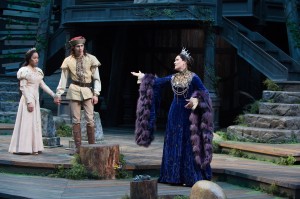
The Queen (Robin Goodrin Nordli) gives a show of support to Imogen (Dawn-Lyen Gardner) and Posthumus (Daniel José Molina). Photo by Jenny Graham.
CYMBELINE (6/4-10/11) by William Shakespeare. Director Bill Rauch. Scenic Design Michael Ganio. Costume Design Ana Kuzmanic. Lighting Design David Weiner. Music/Sound Paul James Prendergast. Choreographer Jessica Wallenfels.
Bill Rauch’s directorial abilities are legion. His versatility and imagination are on display (again) with his mounting of Cymbeline. Consider that he has converted and made sense of Shakespeare’s convoluted plot that takes place in England, Wales and Rome. It is often played as a dark tragedy but Rauch visualizes it as a romantic comedy with eventual happiness abounding while death liters the stage. It works to perfection. All this includes a kidnapping of King Cymbeline’s (Howie Seago) two sons that took place 20 years ago by a trusted friend Belarius (Jeffery King). Then there is the King’s beautiful, beautiful daughter Imogen (Dawn-Lyen Gardner) who is in love with orphaned Posthumus (Daniel Jose Molina). Alas, a mean Queen (Robin Goodrin Nordli), step-mother to Imogen has a nasty son Clothen (Al Espinosa) that she is grooming to be King and therefore must marry Imogen. The queen puts out a contract on Posthumus who flees to Italy.
In Italy, not to bright love smitten Posthumus meets and makes a stupid bet with egocentric lothario Iachimo (Kenajuan Bentley) who travels to London to attempt a dastardly deed on Imogen. England is still under Roman rule and a sub-plot brings a Roman General (Jack Willis) to England to collect tributes that Cymbeline will not pay. That leads to Shakespeare’s obligatory fight scenes (Fight director U. Jonathan Toppo). You know that Shakespeare is fond of girls disguising themselves as boys, so Imogen gets do that as she heads off to Wales now named Fidele.
Back in Wales we meet Belarius and the rowdy/royal (but loyal) sons Guiderius (Raffi Barsoumian) and Ariviragus (Ray Fisher) and they get to ‘adopt’ Fidele as a brother. A magic potion enters into the plot, Posthumus shows up (don’t ask), confusion eventual reigns, the bad guys die off, the good guys win the day, lovers unite and peace between Rome and England is resumed. A pair of ghosts flit on and off the stage and add little to the evening, even though they are written into the script
Suggestion: A must see show.
A MIDSUMMER NIGHT’S DREAM (6/6-10/13) by William Shakespeare. Director Christopher Liam Moore. Scenic Design Michael Ganio. Costume
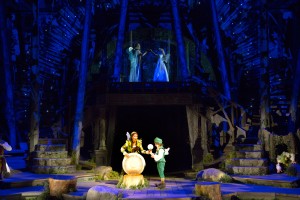
Puck (Gina Daniels) advises one of the Fairies as Oberon (Ted Deasy) and Titania (Terri McMahon) vow their love. Photo by T. Charles Erickson.
Design Clint Ramos. Lighting Design David Weiner. Music/Sound Sarah Pickett. Choreographer Jessica Wallenfels.
What a difference five years makes in the production of A Midsummer Night’s Dream. In 2008 the show was directed by Mark Rucker and it was a fiasco to this reviewer and to OSF audiences. It was a raucous, rock music infused and garishly lighted production with the woodland fairies as high-heeled drag queens straight from a San Francisco Folsom Street Fair. Happily Liam Moore who is the adoptive parent of two pre-teen boys asked them, and other youngsters, their opinions of what fairies looked like. They all agreed they should wings.
Moore has helmed a marvelous cast of youngsters and adults (with wings of course) to play the fairies and surrounded them with charming mortals but maybe “What fools these mortals be.” This is a gentle modern dress version that begins at the graduation within a Catholic Boarding School in Athens. A Catholic priest replaces Duke of Athens Theseus (Richard Howard) and Mother Superior replaces Hippolyta (Judith-Marie Bergan). They are to be married in four days.
When Egeus (Robert Vincent Frank ) complains that his daughter Hermia (Tanya Thai McBride ) is messing around with Lysander (Joe Wegner ) but is promised to Demetrius (Wayne T. Carr ), she is offered an ‘or else’. Or else what? Or else be sent off to a nunnery and remain a virgin forever and ever. That’s not for Hermia so she runs off into the forest with Lysander. But wait, Helena (Christiana Clark ) is in love with Demetrius but he not with her. They end up in the forest in hot pursuit.
But then there are the rag-tag group of would be thespians, that includes egotistical Nick Bottom (Brent Hinkley), who are to perform the Pyramus and Thisbe interlude at the wedding four days hence. Off to the woods they go to rehearse by moonlight. There is a charming scene of that moon rising in various increments to dominate upstage right and is reversed as the evening ends.
King of the fairies Oberon (Ted Deasy) is upset with his queen Titania (Terri McMahon) and concocts a fairy dust to make her fall in love with the first person she sees on awakening. This fairy dust will also be used on our runaway lover(s). More complications: Puck (Gina Daniels) has turned Bottom into an ass and he is the first person Titania sees. . . love blossoms. Puck also puts the dust into Lysander’s eyes and the first person he sees is Helena.
From here on in the acting is an over-the-top romp with marvelous visual effects, a bit of slapstick and the little fairies (Peaseblossom, Cobweb, Mustardseed and Moth) running around looking very cute. The greatest humor is provided by the acting troupe. Although Brent Bently has the most inane action and many of the laughs, Francis Flute playing Thisbe in drag and unbelievable costumes is hysterical. Not to be out done is
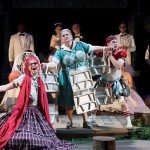
(L-R) Thisbe (Francis Flute) The Moon (K.T. Vogt) Pyramus (Brent Bently) perform the Interlude before the wedding guests.
marvelous K. T. Vogt playing the wall in the interlude. Director Moore wisely extends the slapstick of the acting troupe since they set the audience in a fit of laughter.Suggestions: Highly recommended and bring the kids. The coupling of Bottom the ass and Titania is very discrete.
Kedar K. Adour, MD
Courtesy of www.theatreworldinternetmagazine.com
